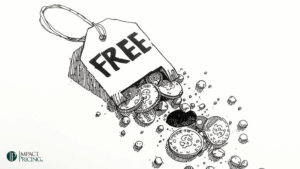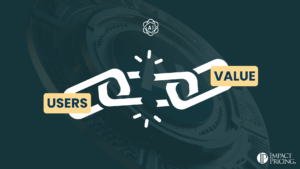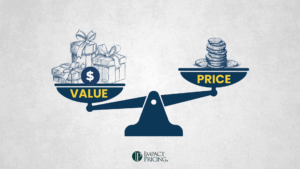Often people ask if I offer consulting services. I hate that question because I have to honestly answer no, but then explain I offer advisory services. Here is what you might want to know about being or hiring a pricing advisor.
What is the difference?
In my career, I’ve hired and worked beside pricing consultants. For each project, they typically have an experienced leader who commands a team of less-skilled workers. The team gathers and analyzes data and recommendations are made to the hiring executive. Companies who follow the recommendations often find phenomenal results. The key is that consultants do the work and present their findings.
A pricing advisor works with executives and teams within the client so they can solve their own pricing problems. This happens through a combination of education and frequent consultations. The advisor asks many questions and applies his/her vast pricing experience and knowledge to the client’s specific situation. Instead of making recommendations at the end of a project, the advisor discusses ideas throughout the engagement. When data needs to be collected or analyzed, the advisor helps the client understand what to do and the client is responsible for the execution.
Should you choose a consultant or an advisor?
It depends on your situation. If you have money but not people resources, a consultant is probably your best choice. If you don’t have a lot of money, but you have people to work on the project, then an advisor probably fits better. An added advantage to using an advisor is your people become more skilled at pricing and value.
What about a coach?
I have a lot of friends who are coaches so I have to tread lightly here. My understanding is that coaches ask a lot of questions to guide you to find the answer yourself. That may help the lessons stick better, but it is slower. An advisor asks questions to understand your situation and then makes recommendations. I often think of myself as a coach as I’m helping individuals uplevel their skills, but my coaching friends tell me that’s not coaching.
Is education enough?
I’ve taught pricing to thousands of students over the last 27 years, and I’ve learned even when students understand a concept, they aren’t able to apply it to their situation. That takes practice and guidance. To those of us who have been doing it for so long, solutions sometimes seem obvious, but experience shows it is challenging for new practitioners. Education is a significant first step that benefits dramatically from implementation assistance.
What makes a good advisor?
Here are three important characteristics of a great pricing advisor.
Pricing expertise – A true pricing expert has worked in many industries, solved many different pricing problems, and has created a set of principles that apply in most situations. True experts study their field and create thought leadership content to share with the world. They willingly engage with other experts and practitioners to push the boundaries of knowledge.
Communication skills – Knowing pricing isn’t enough. A pricing advisor must be able to communicate their ideas and reasoning to their clients in ways that resonate. Clients can only make good decisions when they understand the options.
Helpful attitude – Pricing advisors must know their role is to advise, not make decisions. Their job is to help their clients make the best decisions possible. This requires an attitude of service, not a belief that they know everything.
Is Mark Stiving a good pricing advisor?
YES! (I had to say that since I’m writing this.) However, here is some supporting information.
Pricing expertise – I’ve been in pricing for over 27 years. Here are some highlights.
- Ph.D. in pricing (marketing) from U.C. Berkeley
- Two pricing articles published in top tier academic journals
- Experience as a pricing executive at a $2B technology company
- Started, grew, and sold 2 businesses
- Helped companies with pricing in many different industries
- Author of Impact Pricing: Your Blueprint for Driving Profits (Entrepreneur Press 2011)
- Author of Win Keep Grow: How to Price and Package to Accelerate Your Subscription Business (Morgan James Publishing, October 2021)
Communication skills – I love to teach and help people succeed. As an educator, I’ve created ways to simplify pricing concepts so more people can learn and use them. I’ve been teaching at least part-time most of my career. Here are a few highlights to demonstrate my ability to communicate complex concepts.
- Distinguished Toastmaster
- NPS score of 81 when teaching for Pragmatic
- Blog weekly on pricing since 2010. Initially at pragmaticpricing.com and now impactpricing.com
- Host the Impact Pricing podcast
- Created 10 different pricing courses in my career … so far
Helpful attitude – I will always tell you what I think, but all decisions are yours. I am never upset if you don’t like or use my advice. I know pricing better than you. You know your company and market better than I do. My job is to make sure you have more relevant information to consider when making decisions. Your job is to decide and execute. Our time together will be spent discussing your specific situations, me teaching how relevant pricing frameworks and strategies may apply, and us discussing whether and how to apply them.
Before committing to pricing, I was an electrical engineer and a sales engineer (with a quota). These, plus my experience starting and running companies make me empathetic to every role inside your company.















